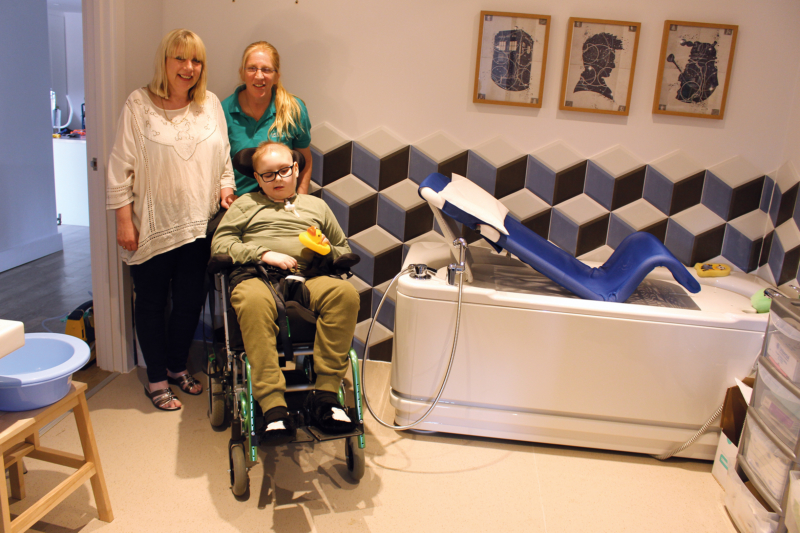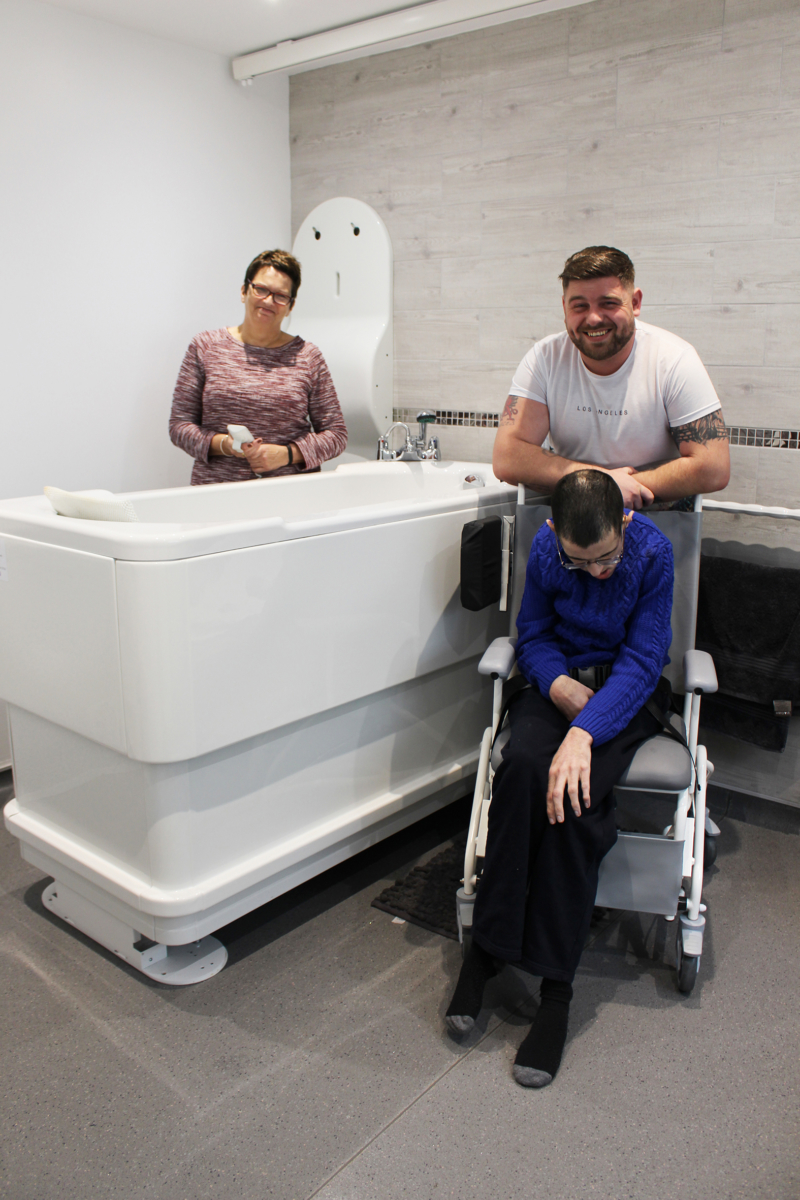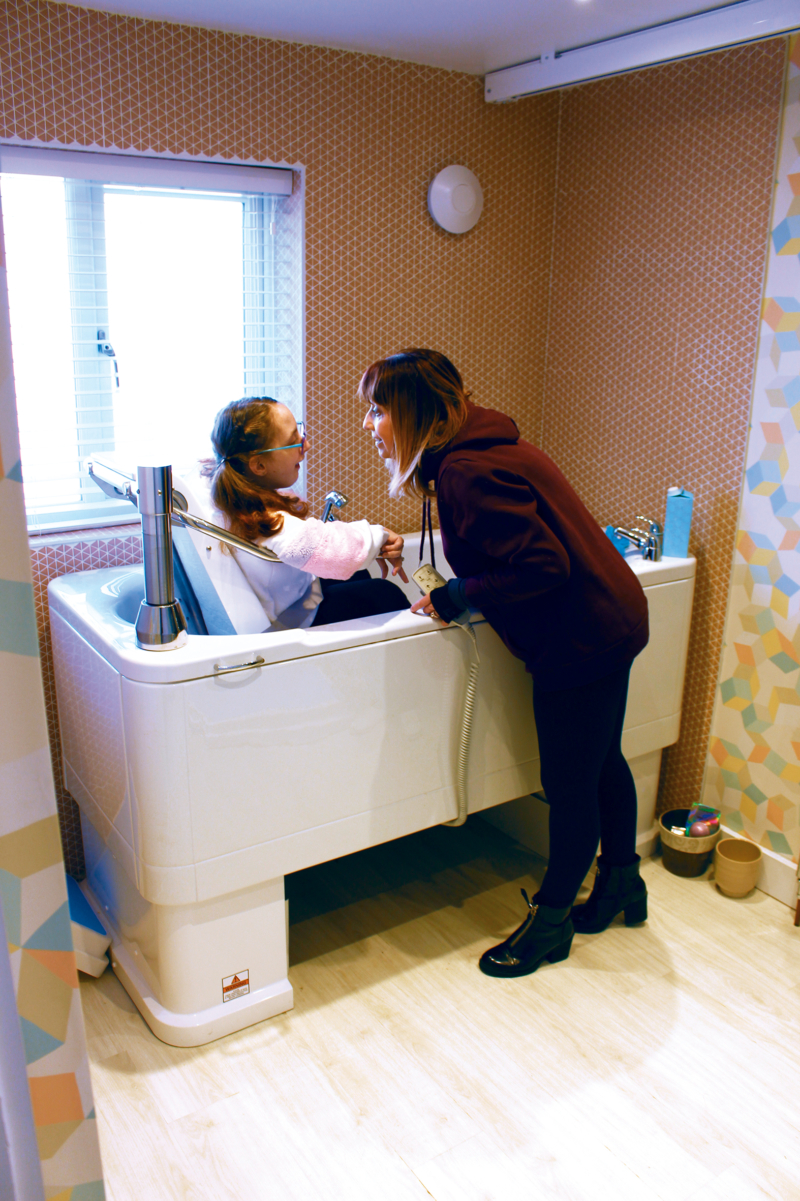Bathing and Mental Health: exploring the occupational possibilities
Mental health is a state of well-being in which an individual realises his or her own abilities, can cope with the normal stresses of life, can work productively and is able to contribute to his or her community.
Mental health is fundamental to our collective and individual ability as humans to think, feel, interact with each other, earn a living and enjoy life. Therefore, the promotion, protection and restoration of mental health can be regarded as a vital concern of individuals, communities and societies throughout the world [1].

Bathing, as in the body being immersed in water, is commonly associated with reduced muscle tension, improved sleep and overall relaxation. Therefore, bathing can play an important role in the protection and restoration of an individual’s mental health. It is generally accepted that occupations cover a wide range of skills/experiences and are beneficial to our mental health i.e. physical activities, intellectually challenging, spiritual, emotional, individual and social experiences; occupations can require effort or provide relaxation [2]. Occupation is defined as everyday activities that people engage in as individuals, with families, friends and in their communities to occupy their time and bring meaning and purpose to their life. Occupations can be categorised into self-care, productivity and leisure [3]. Occupations can have more than one purpose and their purpose can change e.g. to bathe (immersed in water), could be viewed as a self-care occupation as the purpose is to wash and also a leisure occupation as an individual enjoys relaxing in a bubble bath while reading a book.
Bathing causes actions in the body that are unique to this occupation including hyperthermic action, hydrostatic pressure, buoyancy, and viscosity of water [4]. Two cross sectional studies [5,6] reported that regular bathing led to self-reports of improved sleep, reduced stress and overall improved happiness. A randomised cross over control trial of 33 participants were randomly assigned to only showering or bathing for 2 weeks before crossing over to the opposite intervention (bathing or showering). All participants completed the following measures: Short Form Health Survey (SF-8), Short Form of the Profile of Mood States (POMS) at the end of each 2-week period and a self-rating scale (0-100) after bathing or showering each day. Comparison of pre-post scores demonstrate that experience of fatigue, stress, pain, tension, feelings of low mood and anger were significantly lower in the bathing intervention group when compared to the showering intervention [4]. Benefits to mental health may be related to the reduction in gravity experienced when bathing due to the buoyancy of the water [4].

A core skill of occupational therapists is to support individuals to engage in meaningful occupations in a client centred manner [7]. When reviewing the role of an occupational therapist to support a client to bathe, too often the sole focus is on the individual’s ability to transfer in and out of the bath and regularly the solution is equipment that no longer allows the person to be immersed in the water or a shower is offered as an alternative. Both of these solutions are likely to be adequate for an individual who views the sole of purpose of bathing is to get washed. For individuals who choose to have a bath because they find it relaxing, it helps them sleep, it reduces muscle pain and stiffness, it provides them with an opportunity to interact and play with their child, to be intimate with their partner, to find peace away from everyone else with warm bubbles, book, candles and a glass of wine – providing an alternative to bathing would result in occupational deprivation. An Individual’s mental health is enhanced when they can choose the occupations they engage in [8], therefore, they are more likely to achieve a balance between self-care, leisure and productive occupations, which is crucial to promote and protect an individual’s mental health.

When an individual is not able to engage in an identified meaningful occupation over a sustained period of time, this causes occupational deprivation, which has a negative impact on individual’s mental health [9]. Occupational deprivation can be caused by cultural values, limitations imposed by social services e.g. someone with a physical disability who can no longer manage to use a standard bath and is advised that a walk-in shower will be fitted so that he can wash independently and social services will not fund a modified bath for an enjoyable activity is facing occupational deprivation because the culture and system have only placed importance on being able to wash independently. To be truly person-centred and reduce the risk of occupational deprivation, an occupational therapist needs to genuinely listen and respect the individual’s choices and act in their best interests [7]. This will ensure the occupational therapist can be confident in their clinical reasoning about the importance of engaging in the occupation of bathing. Additionally, an individual who is not enabled to have a bath when this is their preference, is at risk of occupational alienation due to not being able to engage in an occupation that has spiritual and psychological value in addition to a practical purpose [10]. Furthermore, by not supporting an individual to access an occupation is also an example of occupational injustice. To deem that having a bath is not important because the person can access a shower, does not support the “right to experience occupation as meaningful and enriching and to exert autonomy through choice of occupations” [8]. Too often occupational injustice is caused by the systems that exist, e.g. when funding is declined for a particular bath due to a shower being identified as a feasible solution for washing.
Occupational therapists recognise the importance of meaningful and purposeful occupations and that individuals need to be engaged in occupations. Engagement in occupations is fundamental to the individual’s physical and mental health [2] and provides clinical justification for the importance of an individual continuing to bathe to allow participation in life roles [12]. Understanding the relationship between the individual, bathing, their life roles and their environment is crucial to provide clinical justification for funding for an adapted bath. Anything less, will cause occupational deprivation, injustice and alienation which will have a negative impact on the individual’s mental health.
References
- World Health Organisation. (2018, March 30). Mental Health: strengthening our response. https://www.who.int/news-room/fact-sheets/detail/mental-health-strengthening-our-response
- Wilcock, A.A. (2006) An occupational Perspective of Health. (2nd) New Jersey, USA: Slack.
- (n.d). About Occupational Therapy. Retrieved April 25, 2021, from https://wfot.org/about/about-occupational-therapy
- Goto, Y., Hayasaka, S., Kurihara, S., Nakamura, Y. (2018) Physical and Mental Effects of Bathing: A Randomized Intervention Study. Evidence-Based Complementary and Alternative Medicine. 1-5. https://doi.org/10.1155/2018/9521086
- Goto, Y., Hayasaka, S., Nakamura, Y. (2012) Bathing in hot water, bathing in Japanese style of hot spring and drinking green tea may contribute to the good health status of Japanese. The Journal of the Japanese Society of Balneology, Climatology and Physical Medicine, 75, 256–266.
- Goto, Y., Hayasaka, S., Nakamura, Y (2014) Health effects of seasonal bathing in hot water, seasonal utilization of hot spring facilities, and high green tea consumption. The Journal of the Japanese Society of Balneology, Climatology and Physical Medicine, 77, 171–182.
- Royal College of Occupational Therapists (2021). Professional standards for occupational therapy practice, conduct and ethics. London, UK: RCOT.
- Wilcock, A.A (1998) An Occupational Perspective of Health. New Jersey, USA: Slack.
- Christiansen, C.H.,Townsend, E.A (2004) An introduction to occupation. In: Christiansen, C.H., Townsend, E.A. (eds) Introduction to Occupation: The Art and Science of Living. New Jersey: Prentice Hall.
- Creek, J. (2014) The Knowledge Base of Occupational Therapy. In J.Creek (Ed). Creek’s Occupational Therapy and Mental Heatlh (5th, pp.27-49). Great Britain: Churchill Livingstone.
- Townsend, E., Wilcock, A. (2004). Occupational justice and client-centred practice: a dialogue in process. Canadian Journal of Occupational Therapy, 71(2), 75-87.
- Royal College of Occupational Therapists (2019) Scope of occupational therapy. London, UK: RCOT.

